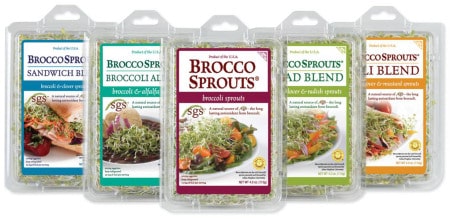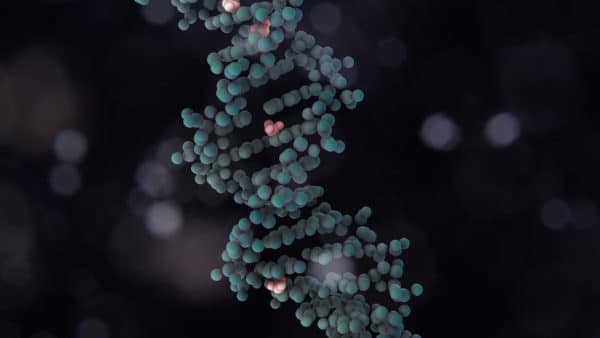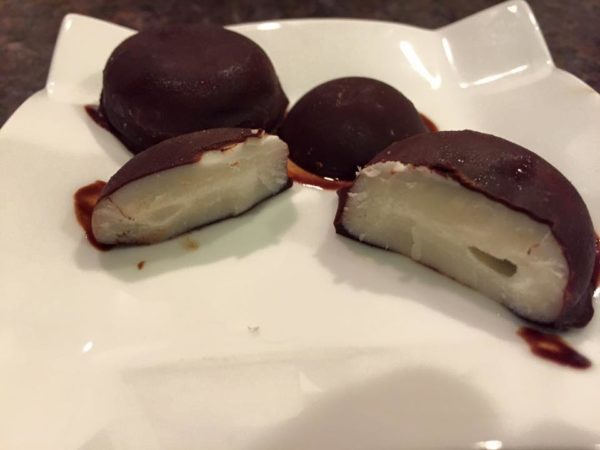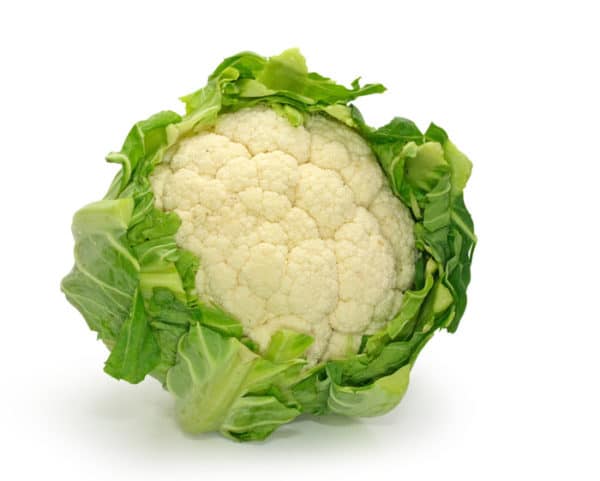
There are many whole fresh foods that belong in your arsenal of cancer protection and immune support. None is more powerful that the little known, super powerful broccoli sprout.
Here’s a contributed article I thought I’d share.
BROCCOLI SPROUTS – Potent Little Cancer Fighters
by Jane Hardin, MS, RD/LD
One of the many benefits of a diet rich in fruits and vegetables is the reduced risk of cancer. Hundreds of studies are being conducted to determine exactly which components in our food are anti-carcinogenic and one of them – broccoli sprouts — is getting a lot of research attention for its phytochemical, SULFORAPHANE.
In general, cruciferous plants are rich in sulforaphane in its glucosinolate precursor form, glucoraphanin (conversion occurs in the gut). Broccoli contains unusually high levels of glucoraphanin, with the youngest plants having the most concentration. Raw is preferred, as heat appears to destroy some of the glucoraphanin. However, the evidence suggests that broccoli must be eaten in large quantities to substantially reduce the risk of cancer. Broccoli sprouts, then, become the optimal food for the following reasons:
- Glucoraphanin is concentrated in the broccoli sprouts. In fact, three day-old broccoli sprouts contain approximately 20 times the concentration of sulforaphane glucosinolate found in mature broccoli. (Other studies suggest sulforaphane glucosinatelevels anywhere from 10-100 times higher in sprouts than in fully grown plants.) A single ounce of sprouts has as much glucoraphanin as 1¼ pounds of cooked broccoli.
- There is a lot of variance in nutrient and phytochemical content from one broccoli plant to another. The sprouts seem to offer more uniform benefits.
How does it work?
There are two complementary routes to controlling cancer. The first is prevention – reducing exposure to cancer-causing chemicals and harmful diet choices.
The second, protection, bolsters the body’s own defenses by releasing detoxification (Phase 2) enzymes. These enzymes neutralize cancer-causing agents and free radicals before DNA is damaged and cancer is initiated. Dr. Paul Talalay and his colleagues at John Hopkins University School of Medicine have shown sulforaphane is a potent activator of these Phase 2 enzymes, thus enhancing the body’s natural cancer fighting instincts.
In animal studies, administration of sulforaphane blocked tumor development, thereby reducing the incidence, size, and multiplicity of carcinogen-induced tumors.
Nutritional biochemist Jed W. Fahey, M.S., Sc.D. (John Hopkins) states that protective enzymes are increased by just a just a couple ounces broccoli sprouts per day.
How do I incorporate broccoli sprouts into my diet?
Just mix them into your salads and wraps, or throw a handful into your smoothies, soups or blended salads! Broccoli sprouts have tender shoots and tiny leaves resembling alfalfa sprouts, but their taste more closely resembles radish. Its sharp flavor is the result of high concentrations of glucoraphanin, exactly what you want to stimulate protection against cancer.
Sprouting your own broccoli seed is easy and cost effective. Just soak the seeds overnight, then rinse and drain them two or three times a day, using any of the multiple sprouting systems you can purchase or make yourself. After just a few days you have sprouts! Eat immediately or store them for a few days in the refrigerator.
Broccoli sprouts are a dietary means to chemically reducing cancer risk, but the good news doesn’t end there. Studies have shown that broccoli sprouts may decrease overall cholesterol levels, while increasing HDL; reduce inflammation; optimize heart, artery and kidney function: decrease the risk of macular degeneration; protect lung cells while dealing with chronic obstructive pulmonary disease; and potentially reverse the damaging effects of diabetes-induced vascular disease!
Plant phytochemicals number in the thousands; only a handful of these have been identified and their mechanisms of action determined. There is also the issue of synergy – to what degree might healthful effects be dependent upon multiple food components working together, rather than as isolated substances?
Because there are still so many unknowns about the nutrition connection with cancer, a sensible approach is to incorporate lots of whole fruits and vegetables, including those crazy broccoli sprouts!
About the Author
R.Jane Hardin, MS, RD/LD is a traditionally-trained registered dietitian with a lifelong engagement in various holistic approaches to health and nutrition. Her eclectic food interests over the years have led her to studies with experts such as Dr. Ann Wigmore and Michio Kushi.
Jane’s renewed interest in raw living foods enabled her to reverse several deteriorating, personal health conditions, including fibromyalgia and chronic fatigue. This inspired her to become a certified Raw Foods Educator. She now enjoys helping others along the pathway to nutritional wellness, regardless of starting point or destination, one bite at a time.
Share this:

Are you feeling stuck?
Do you feel as if something is missing from your practice that's keeping you from delivering breakthrough outcomes for your clients?.
Recent Posts
Our Programs
Nutritional Endocrinology Practitioner Training (NEPT)
The Mastery and Certification tier is our flagship program and provides everything you need to feel confident as a practitioner who knows how to get results that lead to healthy and happy clients.
Functional Assessment Mastery
Explore the relationships between the most important hormones and their relationship with nutrition.
Functional Nutrition Mastery
Learn how to support your clients to eat and supplement in a way that reduces and eliminates chronic symptoms.
Medical Disclaimer: The information on this website is not intended to replace a one-on-one relationship with a qualified health care professional and is not intended as medical advice. It is intended as a sharing of knowledge and information from the research and experience of Dr. Ritamarie Loscalzo, drritamarie.com, and the experts who have contributed. We encourage you to make your own health care decisions based upon your research and in partnership with a qualified health care professional.
Disclosure: Sometimes (but not always), when I share resources in my programs, newsletter, and on my website, I'm using an affiliate link, which means I do make money if you buy. My credibility is extremely important to me; therefore, I only endorse the products, services, and people I believe in. DrRitamarie.com is independently owned and the opinions expressed here are my own.
Click here to see our Privacy Policy.












[…] Continue Reading….. […]
Is it known whether it’s the green leaves, or the white stems/shoots/stalks that contain the Sulforaphene/glucoraphanin/SGS?
Hi Ritamarie
Thanks for your article. I am wondering about the safety of broccoli sprouts as there have been cases of e-coli and salmonella from alfalfa and other sprouts. Do you have a comment on this please?